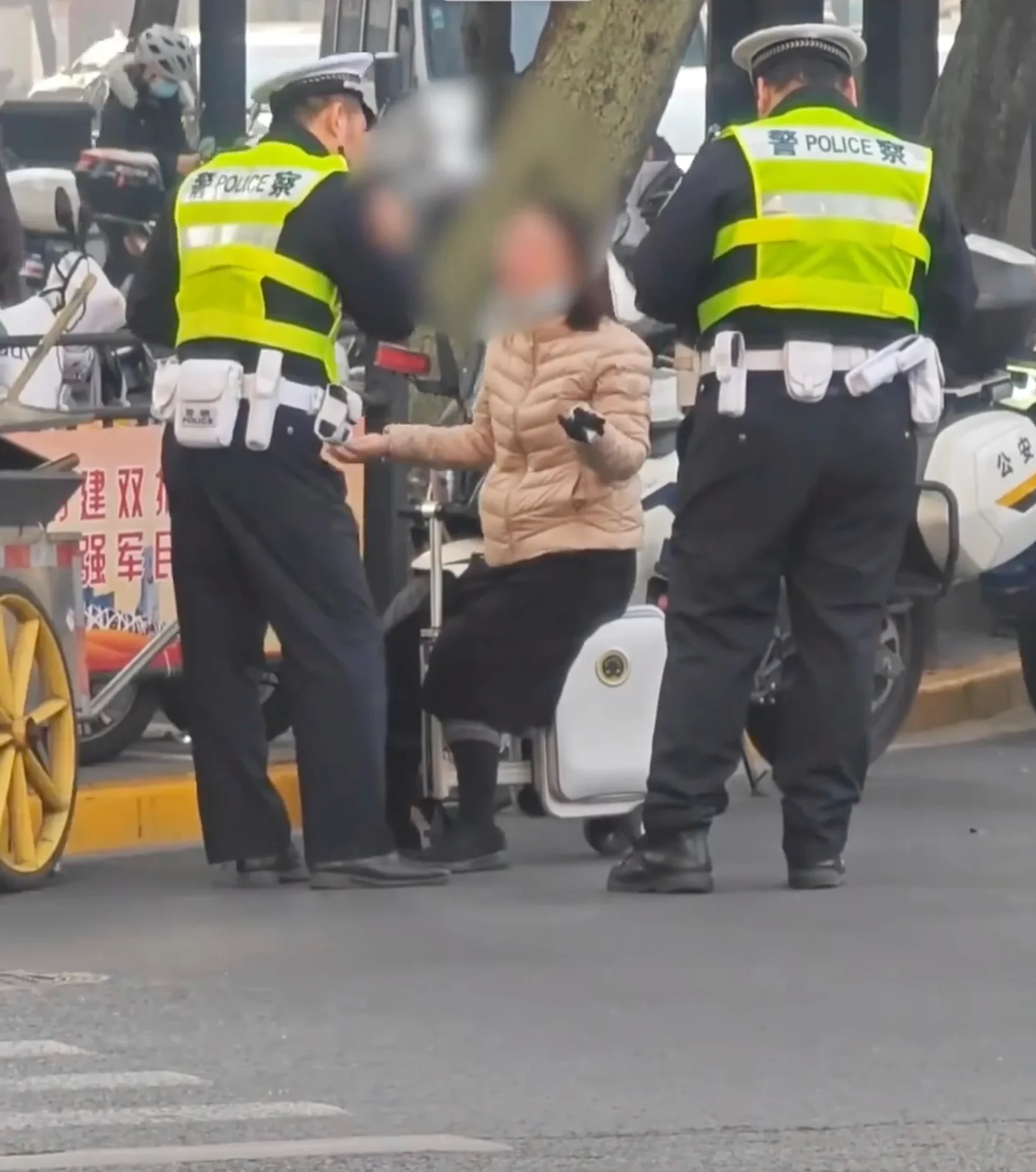In an unusual incident in Shanghai, a woman found herself in trouble with the law for riding an electric suitcase on a busy city street. The incident, captured in a video clip by an onlooker surnamed Zhou, shows the woman sitting atop her motorized luggage, attempting to navigate a bustling intersection. The scene caught the attention of traffic police, who promptly intervened, citing her as a safety risk and a danger to public life.
The woman, seemingly unaware that her mode of transportation was illegal on public roads, was stopped by the police during her unconventional commute. Despite being confronted, she continued to argue with the officers, at one point even suggesting that they give her a ride to her workplace. Her persistence, however, resulted in a fine and a stern reprimand.
The Shanghai police clarified that electric suitcases are prohibited on public roads as they fall into neither the vehicle nor non-motorized vehicle categories, like bicycles. They specified that such e-luggage is permissible only indoors or on private roads within residential areas. Additionally, the police warned that riders of such suitcases would be held accountable for any traffic accidents they might cause.
This incident has sparked a discussion on mainland social media, with many users criticizing the woman for her irresponsible behavior and disregard for traffic rules and public safety. The increasing popularity of electric suitcases in China, particularly for use in shopping malls and airports, has highlighted the need for clear regulations regarding their use. These suitcases, typically priced at around 2,000 yuan (US$280), are convenient for personal mobility over short distances but pose safety concerns in busier, public settings.
The lack of specific regulations for electric suitcases in China means that policies can vary. For example, while some airlines allow passengers to carry electric suitcases on board, provided they meet size and battery requirements, certain transit systems like Amoy Transit Rail in Xiamen, Fujian province, have outright bans on these items.
The Shanghai incident underscores the evolving challenges posed by new forms of personal mobility devices and the necessity for clear legal guidelines to ensure public safety. It also raises awareness about the importance of adhering to traffic laws and the potential risks of using unconventional transportation methods on busy streets. As technology continues to advance, the need for updated and comprehensive regulations becomes increasingly important to balance innovation with public safety and order.
READ MORE:
